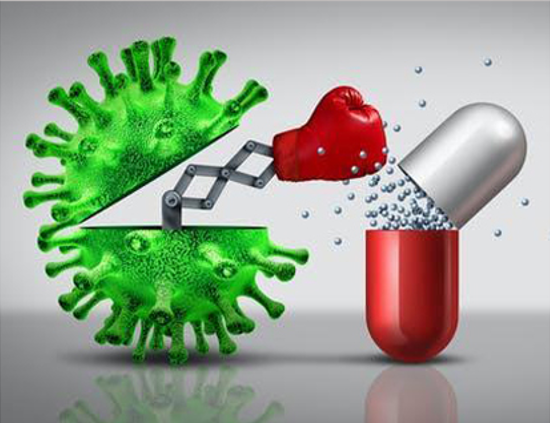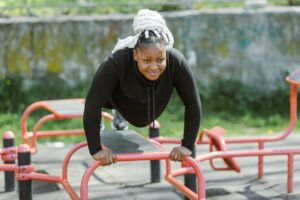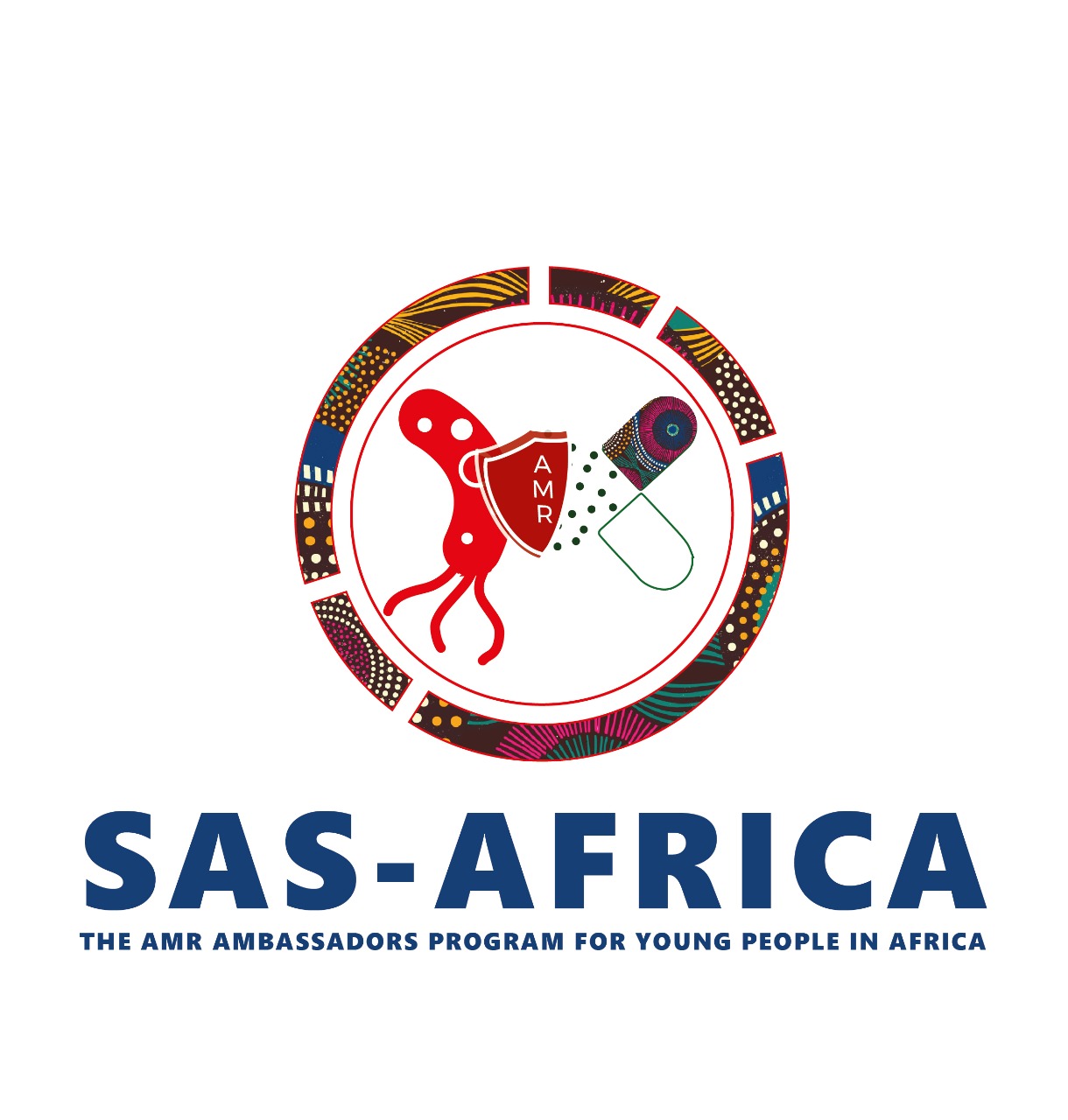Scroll to the right to see how your profession can help mitigate the threat of antimicrobial resistance
Empowering Tertiary level students to be active leaders in the fight against Antimicrobial Resistance, NOW and in the FUTURE!
The Program is open for students from all Courses!
Ever heard of Antimicrobial Resistance (AMR)?
Imagine you are down with fever and your condition is worsening. You decide to visit a healthcare facility and they diagnose you with a bacterial infection. Your situation is so bad that they have to admit you. The doctor starts you off with a dose of suitable antibiotics but after a while they realize that something is wrong! You are not responding to the medication and your situation keeps on worsening, and worsening. They change the medication to try other more effective drugs but unfortunately none is helping. It reaches a point where they have used the last antibiotic on the cabinet, they have ordered or imported other suitable ones but none is helping. Sadly, the doctors are left to watch your condition deteriorate and deteriorate to the last point. There is nothing they can do about it, and afterwards, the worst happens.

Imagine you have a friend who is expecting a child. Your circle of friends are all so happy about it! You are all gonna become aunties, and uncles! You have organised baby showers, and bought some clothes and other necessities for the baby. It happens that the doctors report that your friend cannot undergo normal delivery and has to deliver by caesarean section. It is no big deal right, it happens so many times and it is a normal medical procedure therefore there is nothing to worry about. Unfortunately, after the procedure your friend’s condition starts to deteriorate. Upon investigation, it is realised that the antibiotics used during the procedure to prevent contraction of an infection were not effective and your friend has an infection. The doctors try to alleviate the situation by giving some stronger antibiotics. Unfortunately, the do not respond, and you now risk losing your friend due to simple medical surgery and the baby risks losing their mother at birth. Imagine how sad that would be…

The two cases above are not unique to any setting. They could happen to any of us or our friends. The two are a simple definition of what Antimicrobial (Antibiotic) Resistance looks like.
According to the World Health Organization, Antimicrobial Resistance (AMR) occurs when bacteria, viruses, fungi and parasites change over time and no longer respond to medicines making infections harder to treat and increasing the risk of disease spread, severe illness and death. As a result of drug resistance, antibiotics and other antimicrobial medicines become ineffective and infections become increasingly difficult or impossible to treat as seen in the two cases shared. The World Health Organization has declared Antimicrobial Resistance as one of the top 10 global public health threats facing humanity. Earlier this year in 2022, a study revealed that in 2019, estimated 4·95 million (3·62–6·57) deaths associated with bacterial AMR, out of which 1.27 million deaths were attributed to AMR. This is higher than the deaths attributed to malaria and HIV/AIDS combined in the same year.
Unfortunately, AMR does not have a direct face like other major healthcare problems, and thus there is little awareness and global efforts about it. That is why we are calling on you, a student in university or college, to become a champion in the fight against Antimicrobial Resistance by applying to join the AMR Ambassadors Program for Young People in Africa!




What is the AMR Ambassadors Program for Young People in Africa?
The AMR Ambassadors Program for Young People in Africa is a free nine-month fenced program that seeks to empower tertiary level students from different faculties across the entire African continent to be active AMR champions!
The program builds on our ongoing program with ReAct Africa, The AMR Leaders for Tertiary Students in Africa. The program will help us generate evidence and insights on how we can sustainably engage many more young people within the African continent in their different institutions and local communities.
We strongly believe that each one of us can play an active role in the fight against Antimicrobial resistance and we are keen to show the world how collaborative and multidisciplinary engagement can yield highly successful results especially in the African continent.
As such, the program seeks to engage both students pursuing health-affiliated courses and those pursuing non-health affiliated courses. You do not have to be pursuing a medical course to enroll for the program! Are you an engineering, arts, sociology, IT, Computer Science, Economics, Architecture or a student from any course in a university or college in Africa? Organize yourselves in a group of 5 students from different courses in the same university and apply for the program!
Please ensure that you first go through the entire website to understand more about the program and then apply through the button below
Important Update
We listen, and are very open to discussions and suggestions on how we can engage. Due to the high interest and high number of requests to apply for the program at an individual capacity, we have open up the option of applying for the program at an individual capacity. Additionally, at the group and individual level, we encourage you to have a recommendation letter from a lecturer in your university but is it not mandatory at this first stage of application.
For the group’s application
Additionally, due to the high number of requests, we have adjusted such that the fixed numbers of members from the different courses are not mandatory. This way, it will be easier for you to apply. However, we encourage groups to have multidisciplinary representation. To give you enough time to prepare for your application, we have also extended the deadline to 4th September 2022.
You can now apply as a group or at an individual capacity! Do not be left out!
Our Guiding Values

Collaboration and Multidisciplinary Engagement
We acknowledge and take into account everyone’s skills, ideas, experiences, opinions,and suggestions. We believe that it is only by collaborative efforts across the divide that we can effectively achieve common goals.

Diversity
Diversity brings about creativity and innovation, two essential skills that are critical in the fight against Antimicrobial Resistance. It also promotes better decision making and room for growth by learning from others. That is why we are intentional to ensure that participants in the program are diverse

Consistency, commitment and dedication
The three are the recipes for sustainable engagement and positive impact. Dedication to a particular objective or cause is what yields success. We highly value sustained efforts and will be very keen in engaging with students who are willing to commit adequate time, and prioritise their time for active engagement. This is the key motivator for the in-house competition in the program.

Adaptability, Flexibility, and Open-mindedness
These values contribute to one’s ability to be versatile. When you are versatile, you can adapt to any setup and engage with anyone. We highly value the capacity to engage with others, listen, and act as per their ideas irrespective of their backgrounds. These are values we hope to cultivate in each one of us during the program. We believe that one should not be myopic due to their rigidity but we should all strive to learn every day

Responsibility
Responsibility builds a great will to do what is right. We believe that everyone should strive to do what is right in their context within the right time, and should always be ready to speak out when the wrong things are happening. It is said that bad things happen when good people do not speak up. We believe that young people should feel courageous enough to call out wrong actions when they see them. This is the power of activism.

Discipline
We highly value being true to your word and doing what is required within the required time frame. Discipline helps one to remain focused and build their inner strength and character.
No, the program is free of charge.
Due to the design of the program, we will only be accepting group invitations. If interested in enrolling for the program, we highly encourage you to mobilise other like-minded students from your institution or neighbouring institution, come up with a group and apply for the program.
Each group should have 5 members. In the pilot program, we only have the capacity for 5 members per group.
Due to the design of the program, we highly encourage applications from students. However, if you recently finished school and you are yet to graduate or clear with the institution, you can apply, However, you should have access to the institution throughout the duration of the program. However, we will not be in a position to accept applications from recent graduates since they will have ceased being students of the institutions.
However, you are welcome to apply for our other programs. You can learn more about them in our websites: https://www.studentsagainstsuperbugs.org/ and https://amrleadersprogram.org/
No, any student pursuing any course is invited and encouraged to apply for the program. We believe that each one of us has a role to play in the mitigation of Antimicrobial Resistance.
Yes, you require a local mentor who will guide you in the implementation of the local project in phase 3 of the program. The local mentor should write a recommendation letter for the group and express their willingness to mentor, and support the group. We highly encourage bt it is not mandatory that the mentor should be a lecturer.
The program will run for 9 months and is divided into 3 phases. Phase 1 will take a period of 4 months, phase 2 will take a period of 2 months, and phase 3 will last for a period of 3 months. All the successful participants will be required to commit at least 8 - 10 hours every week to participate effectively in the program. We highly encourage that you consider the time commitment before applying for the program.
The program is open to all countries in Africa. Any students from any tertiary level institution ie. university, college, vocal institution, or technical training institution among others are encouraged to apply.
Yes, a group can have members from different universities. However, all members of the group should be from institutions close enough to each other to facilitate collaborative implementation of a physical local project. The funding provided in implementation to cater for travel expenses for students in distant universities.
In case of any other clarifications, feel free to reach out to us at :info.sasafrica@gmail.com
Deadline of Application: 4th September, 2022.
- 00Days
- 00Hours
- 00Minutes
- 00Seconds



